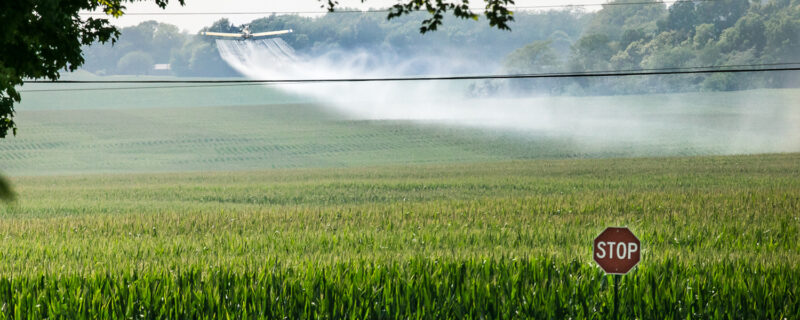
The Trump Administration is pushing a dangerous plan that would block state and local pesticide laws, stripping away crucial protections for children, families, and the environment. If approved, this decision would override stronger safeguards that communities enacted — leaving us with only outdated, weaker federal pesticide regulations that cater to industry, not public health
Here at Prairie Rivers Network, we documented firsthand how current pesticide regulations fail to protect Illinois communities, ecosystems, and public health from the dangers of herbicide drift. Children, particularly those in rural areas or near agricultural fields, are being exposed to drifting pesticides while playing outside or attending school. Farmers and gardeners are watching their crops suffer from unintended herbicide exposure, and natural areas that should serve as safe havens for biodiversity are instead showing clear signs of stress and decline.
We are currently working on new statewide legislation that would require those making large scale pesticide applications to notify the administrators of nearby schools and parks before spraying. But if this federal rule is finalized, states would be stripped of the right to enact stronger protections
Why This Matters
Local protections at risk – Many communities across Illinois and the country have enacted laws to reduce exposure to toxic pesticides in schools, parks, and playgrounds. For example, if the EPA allows these laws to be overturned, Illinois would lose the ability to set temperature restrictions or cutoff dates for volatile herbicides like dicamba.
States must be able to respond to emerging risks – Local leaders know their communities best and must have the ability to quickly act on new scientific evidence about the dangers of toxic chemicals. Federal pesticide reviews often lag behind science, with many chemicals reviewed only once every 15 years (if that).
What’s at Stake
- Communities could lose the power to protect drinking water, wildlife, and pollinators from pesticide exposure.
- Schools and playgrounds could experience more drifting pesticides, with no requirement for setbacks or prior notification.
- States and local governments would be blocked from setting stronger protections than outdated federal standards.
The EPA is asking for public input — comments are due by February 20th. Now is the time to speak up!







